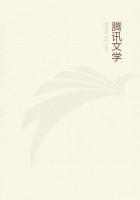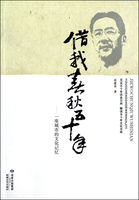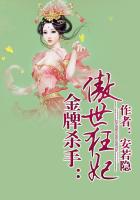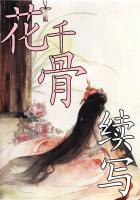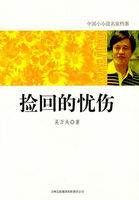We cannot hope to trace the feeling of revenge in its effects on human conduct. Though at present religion and law both prohibit revengeful acts, the desire "to get even" flames high in almost every human breast under all kinds of injury or insult. This form of hate may express itself crudely in the vendetta of the Sicilian, the feud of the Tennessee mountaineer, or the assault and battery of an aggrieved husband; it is behind the present-day conflict in Ireland, and it threatened Europe for forty years after the Franco-Prussian War, --and no man knows how profoundly it will influence future world affairs because of the Great War.
Often it disguises itself as justice, the principle of the thing, in those who will not admit revenge as a motive; and the eclipsed and beaten take revenge in slander, innuendo and double-edged praise. To some revenge is a devil to be fought out of their hearts; to others it is a god that guides every act. We may define nobility of character as the withdrawal from revenge as a motive and the substitution for it of justice.
Some hatred expresses itself openly and fearlessly and as such gains some respect, even from its own object. Other hatred plots and schemes, the intelligence lends itself to the plans completely and the whole personality suffers in consequence. Some hatred, weak and without self-confidence, or seeking the effect of surprise, is hypocritical, dissimulates, affects friendly feeling, rubs its hands over insults and awaits the opportune moment. This type is associated in all minds with a feeling of disgust, for at bottom we rather admire the "good" hater.
We have spoken of these three specialized and directed outgrowths of excitement, interest, love and hatred as if they were primarily directed to the outside world, though in a previous chapter we discussed the introspective interest. What shall we call the love and hatred a man has for himself? Is the self-regarding sentiment any different than the sentiment of love for others? Is that hate and disgust we feel for ourselves, or for some action or thought, different from the hate and disgust we have for others?
Judged by Shand's dicta that anger and fear are aroused if the object of love is threatened, joy is aroused as it prospers, and sorrow if it is deeply injured or lost, self-love remarkably resembles other-love. The pride we take in our own achievements is unalloyed by jealousy, and there is always a trace of jealousy in the pride we take in the achievements of others, but there is no difference in the pride itself. There is no essential difference in the "good" we seek for ourselves and in the good we seek for others, for what we seek will depend on our idea of "good." Thus the ambitious mother seeks for her daughter a rich husband and the idealist seeks for his son a career of devotion to the ideal. And the sensualist devoted to the good of his belly and his pocket loves his child and shows it by feeding and enriching him.
There seems to be lacking, however, the glow of tender feeling in self-love. The projection of the self-interest to others has a passion, a melting in it that self-love never seems to possess, though it may be constant and ever-operating. Self-regard, self-admiration or conceit may be very high and deeply felt, but though more common than real admiration for others, it seldom reaches the awe and reverence that the projected emotion reaches.
In mental disease, of the type known as Maniac Depressive insanity, there is a curious oscillation of self-love and self-admiration. This disease is cyclic, in that two opposing groups of symptoms tend to appear and displace each other. In the manic, or excited state, there is greatly heightened activity with correspondingly heightened feeling of power. Self-love and admiration reach absurd levels: one is the most beautiful, the richest and wisest of persons, infallible, irresistible, aye, perhaps God or Christ. Sometimes the feeling of grandeur, the euphoria, is less fantastic and the patient imagines himself a great inventor, a statesman of power and wisdom, a writer of renown, etc. Suddenly, or perhaps gradually, the change comes; self-feeling drops into an abyss. "I am the most miserable of persons, the vilest sinner, hated and rightly by God and man, cause of suffering and misery. I am no good, no use, a horrible odor issues from me, I am loathsome to look at, etc., etc."
Desperate suicidal attempts are made, and all the desires that tend to preserve the individual disappear, including appetite for food and drink, the power to sleep. It is the most startling of transitions; one can hardly realize that the dejected, silent person, sitting in a corner, hiding his face and hardly breathing, is the same individual who lately tore around the wards, happy, dancing, singing and boasting of his greatness of power. Indeed, is he the same individual? No wonder the ancients regarded such insanity as a possession by an evil spirit. We of a later day who deal with this disease on the whole are inclined to the belief that some internal factor of a physical kind is responsible, some neuronic shift, or some strange, visceral endocrinal disorder.
While self-hate in this pathological aspect is relatively uncommon, in every person there are self-critical, self-condemning activities which sometimes for short periods of time reach self-hatred and disgust. McDougall makes a good deal of the self-abasing instinct which makes us lower ourselves gladly and willingly. This seems to me to be an aspect of the emotion of admiration and wonder, for we do not wish ordinarily to kneel at the feet of the insignificant, debased; or it is an aspect of fear and the effort to obtain conciliation and pity.


